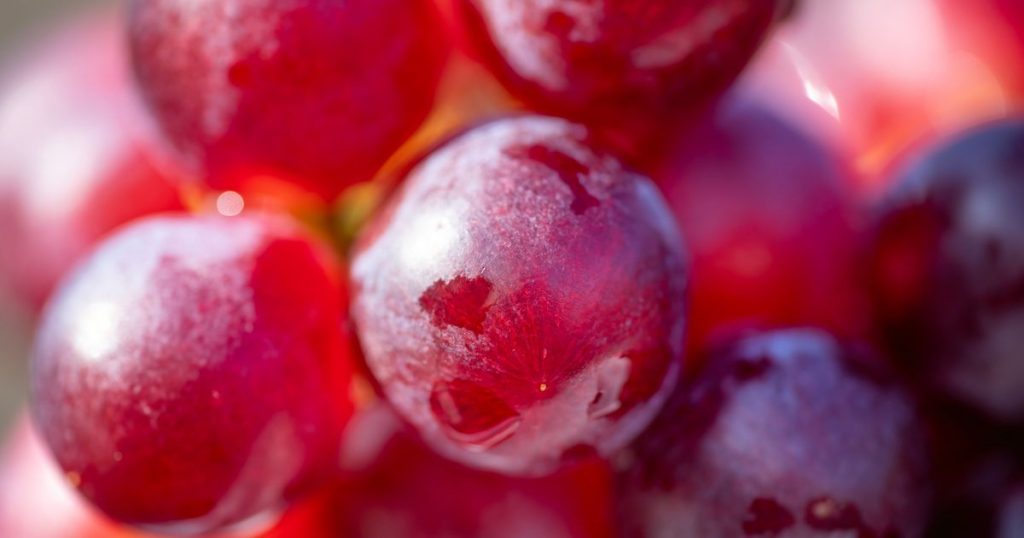The pursuit of youthful, radiant skin often leads many down a path dotted with expensive serums, treatments, and procedures. However, before diving into the deep end of anti-aging products, it’s worth considering the profound impact of diet on skin health. Dermatologists and dietitians agree that a diet rich in specific nutrients can significantly influence how our skin ages, offering a cost-effective and enjoyable alternative to costly cosmetic interventions. This journey into the realm of skin-boosting foods explores eight key dietary components that can help maintain a glowing complexion, each supported by expert insights and explained in an accessible manner.
Hydration is the cornerstone of skin health, and watermelon emerges as a champion in this regard. With its 92% water content, watermelon not only quenches thirst but also plumps the skin, reducing the visibility of fine lines. Registered dietitian Amy Baertschi emphasizes that while hydration can’t erase wrinkles or age spots caused by sun exposure or genetics, it enhances skin elasticity and circulation. Beyond hydration, watermelon is a rich source of antioxidants, combating free radicals that accelerate aging. For those less inclined towards watermelon, cucumbers offer a similar hydrating and cleansing effect, making them an excellent alternative.
Brown rice is another dietary gem, particularly for its high content of vitamin B3, or niacinamide, a skincare staple known for boosting hydration and reducing hyperpigmentation. Dermatologist Dr. Geeta Yadav highlights its role in gently promoting cellular turnover, which can lead to a more even-toned complexion. Additionally, brown rice is a good source of selenium, a mineral that protects the skin from UV damage and inflammation, while also supporting cell growth—key for maintaining youthful skin. Incorporating brown rice into meals offers a simple yet effective way to nourish your skin from within.
Citrus fruits, such as oranges and grapefruits, are celebrated for their vitamin C, which plays a dual role in immune support and skin health. Vitamin C is crucial for collagen production, the protein that keeps skin firm and plump, reducing wrinkles and enhancing blood flow. It’s also a potent antioxidant, shielding the skin from environmental stressors like UV rays and pollution, which can cause collagen to break down and accelerate aging. Each citrus fruit consumed not only bolsters the immune system but also serves as a natural anti-aging agent, making them a vibrant addition to any diet.
Fatty fish like salmon and tuna come to the forefront for their high-quality protein content, essential for collagen metabolism, which keeps skin firm. These fish are also rich in vitamin E, an antioxidant that reduces inflammation and protects against free radicals. Dermatologist Dr. Anna Chacon notes that including fatty fish in your diet can help maintain skin elasticity and combat signs of aging. For those who prefer plant-based sources, avocados emerge as another rich source of vitamin E, with studies showing that regular consumption can enhance skin elasticity and firmness, providing a delicious and nutritious alternative.
Red grapes, particularly their skin, are a natural source of resveratrol, an antioxidant that protects the skin from oxidative damage and slows aging. While red wine contains resveratrol, the experts caution against alcohol, which can accelerate aging, making grapes a better choice. Beef, a rich source of collagen, supports skin hydration and elasticity, while bone broth, often made from beef, offers additional nutrients like protein, vitamin B, and vitamin C. Sunflower seeds, packed with protein, selenium, and vitamin E, further contribute to skin health, rounding out the list of dietary essentials.
In conclusion, the key to youthful, radiant skin lies in a holistic diet that emphasizes hydration, vitamins, antioxidants, and protein. By incorporating these eight foods—watermelon, brown rice, citrus fruits, salmon, red grapes, beef, sunflower seeds, and avocados—into your meals, you can support skin health naturally. Remember, a glass of water and a balanced diet are among the most effective tools for maintaining a vibrant complexion, proving that the path to glowing skin can be both nutritious and delightful.









